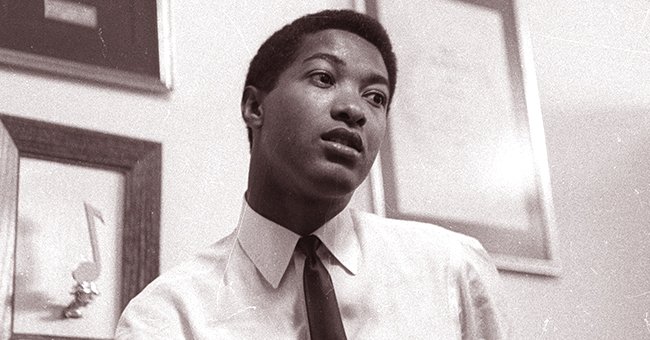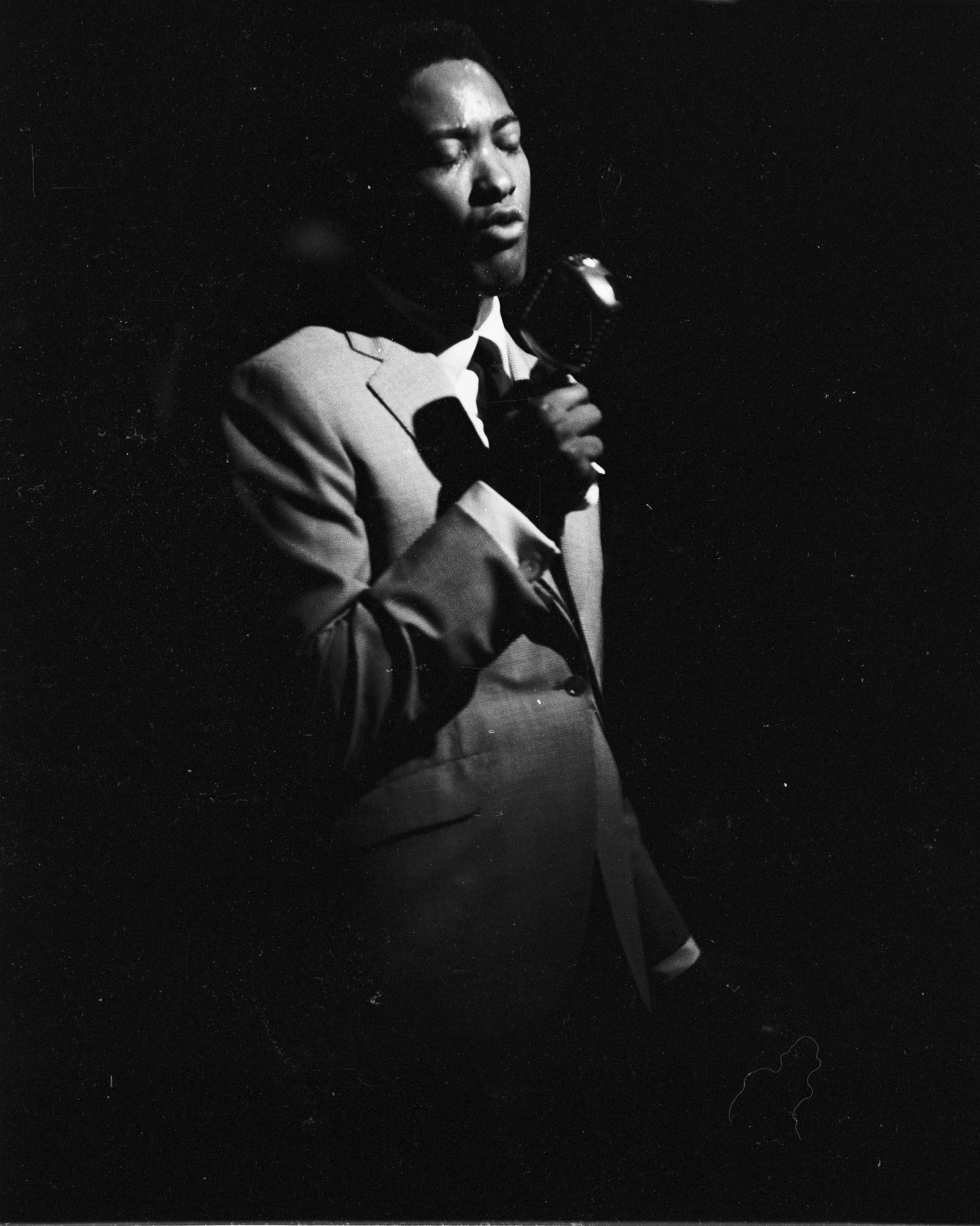
Touching Story of Sam Cooke Paying for Funeral of 1st Wife Who Died Too Young after Divorce
In his short life, the late acclaimed singer-songwriter Sam Cooke showed he had a heart of gold when he decided to pay for the funeral of his first wife, who tragically died after their divorce. Take a look at their touching story.
Late singer-songwriter Sam Cooke was a pioneering recording artist, often called the father of soul music. Born as Samuel Cook in Clarksdale, Mississippi, in 1931, he grew up in Chicago as the son of a minister.
Cooke started as a gospel performer and later crossed into soul, rock n' roll, and pop music. His contributions in the pop and soul scene include the hit songs "Chain Gang," "Sad Mood," and "You Send Me."

A picture of Sam Cooke taken in January 1960. | Photo: Getty Images
A CHILD PERFORMER
As a child, the Rock and Roll Hall of Famer began performing with his religious family. During his teenage years, Cooke formed a quintet band called the Highway QCs.
Among Cooke's greatest inspirations was the gospel group Soul Stirrers, who shaped his early work. He also had influences from singers Smokey Robinson and Rod Stewart, among others.
After graduating from high school in 1948, Cooke received an invite to join the Soul Stirrers, which allowed him to hone his craft. He was a part of the group for six years before pursuing a solo career.

Sam Cooke performs on stage at the Copacabana nightclub, New York, in June 1964. | Photo: Getty Images
COOKE'S MARRIAGE AND DIVORCE
Besides his popularity, Cooke was known for his marriage to his first wife, Dolores Mohawk, a dancer and singer from Los Angeles. They wed in 1953 but later separated. Cooke said of his split from his ex-wife:
"We just couldn't make it and we decided to call it quits. We're still good friends."
The same year he married Mohawk, he started a career in pop music. As he gained fame and fortune, Cooke experienced serious problems, including being accused by a 26-year-old woman Navy yard secretary of fathering her son.
Cooke paid the young woman $5,000 as "out-of court-settlement." His lawyer, at that time, thought the musician admitted the guilt, but Cooke said he paid her because he could not afford to lose time away from work.
Shortly after Cooke's expensive settlement with the young woman, his wife, Mohawk, took the late icon to court on charges that he secured a default divorce without her knowledge.
Cooke and Mohawk's legal court battle had been very complex, but the estranged pair finalized their divorce in 1958. Afterward, Cooke took his time and liberty to enjoy his musical career.
MOHAWK'S UNTIMELY DEATH
Unfortunately, Cooke's close connection to his ex-wife after their divorce would soon end. In 1959, tragedy struck when Mohawk got involved in a road crash one evening.
According to reports, Mohawk was driving her car alone after working from a nightclub in her hometown in Fresno, California. She eventually rammed a house and a post.
Mohawk's cause of death remained unclear at that time, but reports stated she might have suffered a heart attack. Another assumed she died because she was driving while drunk.
Meanwhile, Cooke learned of his ex-wife's devastating death while he was in Miami, Florida. He then immediately canceled his engagements to pay his last respects to Mohawk.
Cooke also wrote and sang the heartwarming song "Somewhere There's A Girl" in honor of his late wife.
A friend of Cook later revealed that the music icon was the one who paid his former wife's funeral and burial expenses. Mohawk's remains were buried at Fresno's Fowler Cemetery.
MARRYING HIS CHILDHOOD SWEETHEART
Shortly after his ex-wife passed away, Cooke found another chance at love, tying the knot with his childhood sweetheart, Barbara Campbell, in Chicago. Cooke's father officiated their wedding ceremony.
The couple moved and settled in Los Angeles, where Cooke's career soared high. Their family expanded and welcomed three children - daughters Linda and Tracey and son Vincent.
COOKE'S MUSIC IN THE LATE 1960s
Cooke became one of the most respected musicians in the late 1960s. He was not only a talented singer and songwriter, but he was also a savvy businessman.
He established his own publishing company and record label for his music and negotiated a great deal with RCA. In addition, he continued to attract fans with various musical genres such as rock, soul, and pop.
Cooke released many hit tracks, including the "Wonderful World," "Twistin' the Night Away." He was also best known for "Another Saturday Night," an ode to loneliness.
COOKE'S TRAGIC DEATH
Cooke also sang the heartwarming song "Somewhere There's A Girl" to honor his late wife. With a career reaching incredible heights, fans were shocked when he died in 1964.
The exact circumstances of his death remain a mystery. However, a 2019 Netflix documentary titled "Two Killings of Sam Cooke" had explored the superstar's questionable death.
The first 45 minutes of the music documentary focused on Cooke's life and career. Meanwhile, the last quarter focused on conspiracy theories about his death.
According to Decider, Cooke was having dinner with friends in Los Angeles. Since he had loads of cash in his pocket, he picked up a woman at the bar named Elisa Boyer, who was later revealed as a prostitute.
When they stayed in a cheap motel room, Boyer claimed that Cooke got aggressive; she stole his clothes and ran off while he took his time in the bathroom. Cook was enraged after seeing Boyer run into the motel's office.
Cooke was half-naked when he had a physical altercation with the motel manager, Bertha Franklin, who fatally shot him. The manager claimed it was a form of self-defense.
Biography noted that the case was ruled a justifiable homicide. After Cooke's death, his record label released "A Change Is Gonna Come," an homage to Bob Dylan's protest music.
Cooke's experiences also influenced the song as a Black man. The hit track became an enduring anthem of the 1960s Civil Rights Movement.
No matter the circumstances of Cooke's death, the genre-bending musician had successfully cemented his rightful place in the industry, and his musical legacy will live on.
news.AmoMama.com does not support or promote any kind of violence, self-harm, or abusive behavior. We raise awareness about these issues to help potential victims seek professional counseling and prevent anyone from getting hurt. news.AmoMama.com speaks out against the above mentioned and news.AmoMama.com advocates for a healthy discussion about the instances of violence, abuse, sexual misconduct, animal cruelty, abuse etc. that benefits the victims. We also encourage everyone to report any crime incident they witness as soon as possible.
